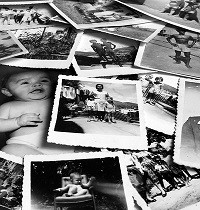- Home
- Better Memory
- Free Memory Tips
- April 2015 Issue
Free Memory Tips, April 2015 Issue
Below is the April 2015 issue of Free Memory Tips. To learn more about this free email newsletter, or to start receiving it, please visit the Subscription Page. I send out the newsletter about once a month. You can unsubscribe at any time.

Welcome to the APRIL 2015 issue of my free Memory Tips email newsletter. Below are powerful strategies for improving your memory. Ready to boost your brain power?
Below are powerful strategies for improving your memory. Plus I've included links to free online brain games that can strengthen your thinking skills.
In this issue:
Social Activity is Key to Strong Memory in Old Age
Retrieve "Lost" Episodic Memories and Strengthen New Ones
Use Mental Rehearsal to Improve Skill Performance
FREE Brain Games: Improve MATH Skills
If you like this newsletter, "pay it forward" by sending this to a friend. If someone did forward this to you, and if you like what you read, please subscribe by visiting the Memory Tips subscription page.
My goal is to help you learn faster and remember more. That's why I created Memory-Improvement-Tips.com and this email newsletter.
The secret to a more powerful brain is two-fold: 1) improve your brain health, and 2) learn memory techniques. This can lead to more success and fulfillment in life!
Social Activity is Key to Strong Memory in Old Age
There is no guaranteed way to avoid memory loss or Alzheimer's disease in old age. But according to research, you can lower the odds of memory problems and even strengthen your memory by staying socially engaged.

A recent study at Johns Hopkins found brain regions of seniors who volunteered in the social Baltimore Experience Corps program increased in size over a two-year period. This translated to measurable improvement on memory tests.
Normally, the brain shrinks each year with advanced age. The brains of these socially engaged elderly actually grew.
Baltimore Experience Corps brings retired people into public schools where they share their lifetime of knowledge and experience with young people. According to researchers, this interaction between seniors and youth stimulated the brains of the older individuals to maintain size and even grow.
Normally the brain is expected to shrink by 1 or 2 percent during a two-year period. So for participants to increase brain size and memory is remarkable.
Studies of so-called "super-agers" support this finding. Some lucky elderly have brains that appear decades younger than their physical age. Engagement in social activity is a thread super-agers share in common.
According to Lars Nyberg, professor of neuroscience at Umea University in Sweden:
"Those who are socially, mentally, and physically stimulated reliably show greater cognitive performance with a brain that appears younger than its years."
As you get older, be sure to maintain social interactions to help keep your memory sharp. Join clubs in your area that meet regularly, attend classes and practice social skills like dancing, or volunteer in your community.
Engaging in regular social activity can counteract memory decline associated with aging. That should motivate you to stay social as you grow older!
References:
Johns Hopkins Bloomberg School of Public Health. "Civic engagement may stave off brain atrophy, improve memory." ScienceDaily. 14 April 2015.
Rogalski, et al. "Superior Memory and Higher Cortical Volumes in Unusually Successful Cognitive Aging." Journal of the International Neuropsychological Society, 2012 DOI: 10.1017/S1355617712000847
Nyberg, et al. "Memory aging and brain maintenance." Trends in Cognitive Sciences, 2012; 16 (5): 292 DOI: 10.1016/j.tics.2012.04.005
Retrieve "Lost" Episodic Memories and Strengthen New Ones
Do you or someone you know have trouble recalling events? The tips below can help improve a person's memory of experiences both recent and from years past.

Not long ago, a visitor to Memory-Improvement-Tips.com related how she has little recollection of her childhood. She also has difficulty forming new memories of events today.
Memory of events is known as "episodic" memory. Episodic memories are stored differently in the brain from procedural "how-to" memories and semantic "information" memories.
Because of this, a person with an otherwise reliable memory may have trouble remembering details from their experiences, either from childhood or more recently.
Or, in the case of the visitor, the person's mind may be blocking the memories for psychological reasons.
But our memories are the foundation of our sense of self. Who we know ourselves to be depends on our recollection of past activities and interactions with others, and the decisions we've made.
So here are a few practical tips for better recalling daily experiences:
Write in a daily journal. Literally record your life in the written word. At the end of each day, write down important events from the day. Each time you make an entry, review the previous few entries to refresh your memory of recent events.
Begin a daily mindfulness meditation practice. Among many benefits, meditation strengthens the "muscle of attention", specifically the ability to stay focused and aware in the present moment.
Take photos during your day, when practicable. Today's smart phones make this easy. Then, at the end of day or end of week, review the photos as reminders of places you visited and other experiences.
And here are some tips for retrieving "lost" memories from one's youth:
Reconnect with former classmates and friends. Get them chatting, if possible, about school or social events from past days.
Read stories from newspaper archives for your area. Focus on time periods aligned with gaps in your memory. Details of "current events" back then may trigger your own memories of those times.
Look through family photo albums. Pictures of places you visited as a child and other experiences may trigger memories.
Physically visit your old haunts. On a trip a few years ago, I happened to pass through the town where I grew up. I stopped by my old neighborhood and former home. Much had changed over the years, but standing on that street brought a flood a memories. If you cannot travel, visit virtually though Google Earth.
Some researchers believe that every experience is recorded in long-term memory. The reason we can't remember them all is we simply cannot access the memories.
One way around this mental roadblock is to through reminders. Whether it's an old family album from years past or a journal entry from a few days ago, such reminders establish a mental link for retrieving episodic memories we may have mistakenly assumed are lost.
Use Mental Rehearsal to Improve Your Skill Performance
If you've ever played a sport, your coach may have advised visualizing the motions in your head before performing them. I remember this from tennis years ago.

I was reminded of this the other day while watching the Masters golf tournament on TV. This year's winner, Jordan Spieth, is known to practice mental rehearsal before his shots. The TV commentators pointed this out during one of Spieth's shots, which caught my interest.
The theory is that mental rehearsal helps prepare the brain to engage in the activity. And it turns out research supports this to be true.
So-called mirror neurons in the brain are tasked with copying or mimicking a movement we see in others, or even from recalling our own performance.
As David McKenzie of GolfStateOfMind.com explains,
"Triggering mirror neurons is like taking a shortcut to learning a new movement. But mirror neurons can also be fired during play by watching your playing partners or remembering your own great shots.
"Nick Faldo commented during the TV coverage yesterday that one of the most impressive things about Jordan is his visualization of the shot and his commitment to that image."
I noticed that golfer J.B. Holmes was also using this technique during the tournament.
Learning a physical skill involves training the mind as well as the body, of course. And this is true in other areas, not just sports.
As reported recently in the Canadian Journal of Emergency Medicine, trauma clinicians in emergency rooms perform better when they first map out a "mental blueprint" of the treatment needed before the case comes through the door.
Similar to Spieth on the fairway, medical professionals can improve their performance in the hospital by using visualization before taking action. Dr. Hicks, lead researcher in the study, explained:
"We're borrowing principles from performance athletes, musicians and even the military, to help guide clinicians during high-stress, challenging situations."
In the case of an emergency room, all members of the trauma team can participate in the mental rehearsal while they wait for the case. That way, there is a better chance all clinicians involved understand their roles and responsibilities when the ambulance arrives.
Not a professional golfer or an E.R. physician? You can still use mental rehearsal to improve your own performance at school, at work, or in social situations.
Think of ways you could integrate mental rehearsal in your own activities. Doing so may save time when learning new skills and could increase your performance and effectiveness.
References:
"How Jordan Spieth Won The Masters With His Mental Game." GolfStateOfMind.com, 4/13/2015
Megan A. Haytera et al. "Mental practice: a simple tool to enhance team-based trauma resuscitation." Canadian Journal of Emergency Medicine, April 2015
FREE Brain Games: MATH
There are 256 free online brain games on my website, Memory-Improvement-Tips.com. You can play them online anytime.
No restrictions, no logging in. Just pick a game, go to the game page, and start playing.
Below are links to three of the online games that strengthen math skills, an important brain ability. Math games train math-related skills like logical reasoning, quantitative reasoning, and arithmetic.
Play these free games now to give your brain a boost:
Multiply Aliens Attack. Multiply Aliens Attack tests your skills at mental math. Quickly solve multiplication and division facts to stop aliens from destroying your city!
Pocket Change. Drag out currency from the bottom of the screen to match the total value and number of coins on the left. There are eight combinations on each level.
Daily Sudoku. This online sudoku game displays a new sudoku puzzle each day. Varying levels of difficulty can be selected, so even beginners can have fun and learn from this game.
That's all for now, and thanks for reading. For lots more tricks and strategies to improve your brain, visit the Get a Better Memory page on my website.
If you like the website, tell your friends and family about it. And please click the Facebook "Like" and Google +1 buttons on my site. Every vote of confidence helps. ![]()
Best regards,
Memory-Improvement-Tips.com
Home of over 250 free online brain games
Memory Tips newsletter Back Issues page: https://www.memory-improvement-tips.com/Free_Memory_Tips-backissues.html

Newest / Popular
Multiplayer
Board Games
Card & Tile
Concentration
Math / Memory
Puzzles A-M
Puzzles N-Z
Time Mgmt
Word Games
- Retro Flash -
Also:
Bubble Pop
• Solitaire
• Tetris
Checkers
• Mahjong Tiles
•Typing
No sign-up or log-in needed. Just go to a game page and start playing! ![]()
Free Printable Puzzles:
Sudoku • Crosswords • Word Search











